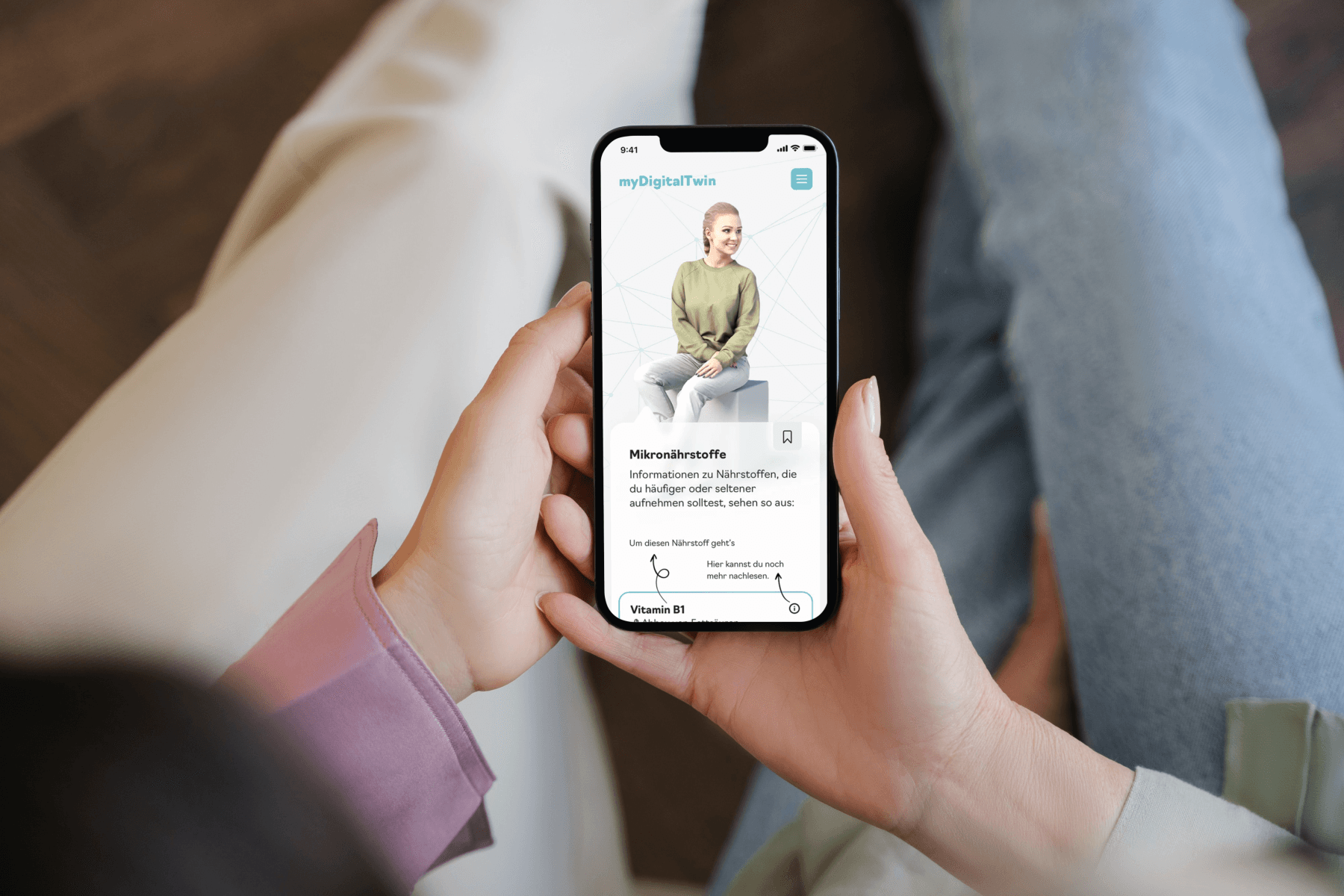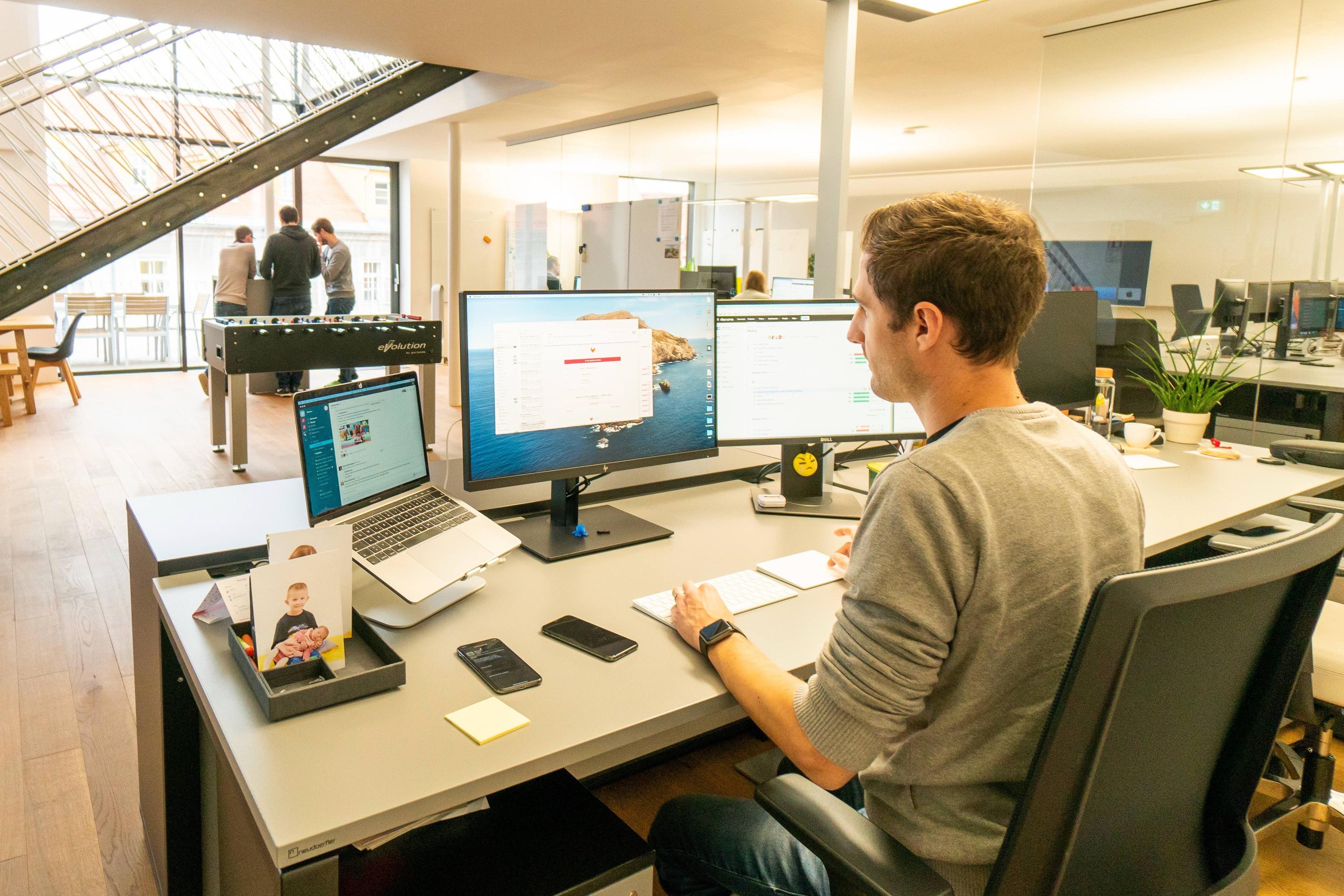E-Health
/
Jan 11, 2023
E-Health Trends 2023

We are currently at the beginning of a new wave of innovations in the healthcare industry. Already familiar health solutions such as fitness trackers are being supplemented by mobile health and tools that work with artificial intelligence or biomedical engineering. These new developments have the potential to revolutionize the e-health and medical industry in the coming years.
Artificial Intelligence
Already in recent years, the number of developments in the field of AI has risen sharply, a trend that will continue in the future. This primarily involves the collection, analysis and utilization of relevant, individual, health-related data.
Numerous areas of application can be found throughout the healthcare system - patient orientation, drug development, computer-assisted surgery, epidemiological prevention or diagnostic support through virtual assistance.
The latter is the focus of a young and innovative start-up in the Styrian capital Graz. "Medaia" has made it its goal to improve the possibilities in dermatology with the help of AI and to support dermatologists in the optimal care of their patients. The app "Skinscreener" supports general practitioners and dermatologists in differentiating between benign and malignant skin lesions. Skin lesions are scanned with the app via the smartphone camera. By immediately assessing the likelihood of a malignant skin disease, users are prompted to visit a doctor's office if they notice anything unusual.
Artificial intelligence can revolutionize patient care. But how does it work? AI algorithms can process large amounts of data extremely quickly and with high accuracy and search for abnormalities, deviations and commonalities. That's why the system works optimally for repetitive tasks like image analysis.
Health Data Security
Digitizing the organization of health data is generally well received by patients. It provides efficiency and thus increases the quality of care. However, confidentiality and security is inevitable to establish digital health solutions. To address cybersecurity risks, it is not enough to meet legal requirements. Rather, a high level of protection must be ensured.
The use of Fast Healthcare Interoperability Resources (FIHR) is recommended for medical data exchange. This is a new standard that supports data exchange between healthcare software systems. The goal of FIHR is to communicate across locations, facilities, and sectors, and to make proprietary data more transparent to patients. Compatibility is to be achieved in the integration of values in all programs used in the inpatient and outpatient healthcare sector.
An exemplary example of FIHR's scope of application is the "MyHealthDiary" app. With its help, health-related appointments and data such as blood pressure, pulse, blood sugar, weight and body temperature can be quickly and securely recorded on a smartphone and forwarded to healthcare professionals.
Biohacking and self-optimization
Another observable current trend is "biohacking" - the pursuit of self-optimization. Biohackers want to become the best possible version of themselves, improve performance, extend their lifespan and optimize their state of health. This is achieved through the pillars of biohacking - nutrition, routines and behaviors that address the body's needs, such as sleep or exposure to cold, and the accurate tracking of one's health data.
Many biohackers the latter, for example, resort to DNA analysis to get accurate information about what nutrients they need and what foods contain them.
The start-up "Smartmelts" around "MyDigitalTwin" has made it its mission to make this information available to anyone interested in biohacking. A new type of tool was created that can provide personalized tips based on scientific findings. In the first step, users are sent a DNA analysis kit. A web application is fed with the values from this and presents recommendations and tips for nutrition and behavior based on the results of the analysis using its own digital twin.
Conclusion
The healthcare sector is in a state of upheaval. The Covid 19 pandemic in particular has shown us how important health in general, and digitization of the sector in particular, is. Patients are familiar with digitization in various areas of their lives and are increasingly losing their skepticism about relying on digital solutions for health issues as well. This opens many doors for e-health startups and research, and the potential for digital innovations in the future is great.
Sources: https://www.fticonsulting.com/insights/articles/nine-digital-health-trends-c-suite-watch https://skinscreener.com/blog/ki-in-der-dermatologie https://www.brain-effect.com/magazin/was-ist-biohacking https://www.redbull.com/ch-de/theredbulletin/dna-analyse-app-mydigitaltwin-im-portraet


